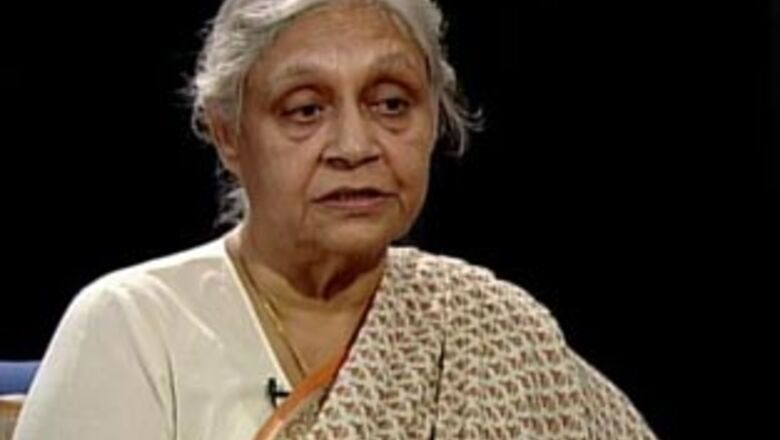
views
New Delhi: With the national capital facing an acute power crisis, Chief Minister Sheila Dikshit has urged Delhiites to observe energy conservation measures such as closing shops by 2000 hrs IST. Her appeal has evoked a mixed response from residents and shopkeepers.
“There has been an unprecedented increase in demand for power in north India in view of the delayed monsoon and abnormally high temperature. All the citizens of Delhi are requested to observe energy conservation measures for ensuring stability of the electricity grid, and reduce power demand,” read Dikshit’s appeal issued in newspapers Monday.
Some of the energy conservation measures Dikshit suggested include closing the shops by 2000 hrs IST, using only one air conditioner in the house, using coolers in place of air conditioners, switching off all neon signs in the evening, switching off all electrical equipments when not in use, and not using electrical advertisement billboards after 2300 hrs IST
One of the other suggested measures is to set air conditioners at 24-25 degrees Celsius and not below that temperature, especially in large establishments.
The Chief Minister has also appealed to people to use washing machines at non-peak hours (0600-1000 hrs IST) and wash full load in the machine.
“While every effort is being made to get adequate power, the heat as you will agree is unusually abnormal. All the citizens are requested to please co-operate by following the above measures since the situation is expected to remain critical till the monsoon breaks in,” said Dikshit’s appeal.
“I appeal to Delhiites to cooperate by adopting the energy conservation measures,” she added.
The appeal has evoked mixed response from the denizens who are reeling under the intense heat for over a week now.
“It’s not that we don’t know about these measures but we rarely follow them. Tough times like these teach us to be careful about our future. If we will save it today, our children will get it tomorrow. I will indeed follow our chief minister’s appeal,” Neelam Gupta, a housewife from Rohini area of west Delhi, told IANS.
Neha Verma, who is a resident of Dwarka area, said: “My family already believes in power conservation. We will take all possible steps to conserve power and save it for everyone.”
“The government was sleeping till the power problem developed into a full blown crisis. Only after Sonia Gandhi called her and asked her to take actions, she convened a meeting and warned the BSES. But I will still save power as it is my duty,” said east Delhi resident Puneet Raheja.
Shopkeepers were also not united in their response to Dikshit’s appeal.
Said Ashok Randhawa, president of the mini market traders’ association in Sarojini Nagar market in south Delhi: “We will only be too glad to adhere to the chief minister’s suggestions to save power in order to meet the escalating power demand.”
“We have all become victims to frequent and long power cuts. But if we get together and make a committment to save power when we have it, then probably things can get better. We, at the traders’ association here, have decided to send a circular Tuesday telling all shopkeepers here to close their shops an hour earlier than usual,” Randhawa, who owns a small hosiery shop in the market, told IANS.
“Generally we close our shops at 9.30 p.m. and closing an hour earlier will mean loss businesswise. But we have to take a stand. Each shop has an air cooler or air conditioner, 40-50 bulbs and other electrical appliances. So, this will surely make a difference,” he added.
But others like Sanjeev Mehra, president of the Khan Market Traders’ Association, said Dikshit’s suggestion didn’t seem feasible.
“There is hardly any power. So how can we waste it? And whatever we use, we pay for it. Most of the places in Khan Market are restaurants, so closing them down early is not feasible,” he said.
Both Randhawa and Mehra, however, agreed that the chief minister must ensure that no power or water is wasted in the ministers’ quarters and offices.
“Practice what you preach. Most of these ministers have two-three ACs in their offices and at their homes and use them non-stop. They too should be asked to save power,” Mehra said.


















Comments
0 comment